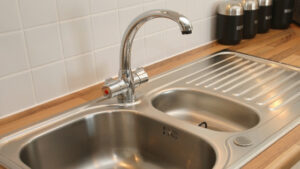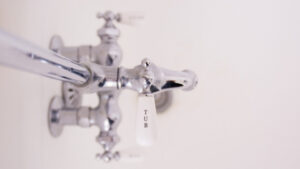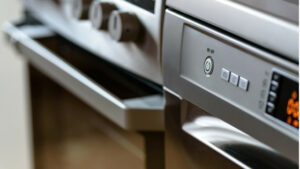Five Simple Tips For a Clean Garbage Disposal
The garbage disposal is one of the most underrated home appliances in the kitchen. Not only does it allow you to get rid of food scrap, but it also does so in an efficient manner. As helpful as it is, it can also become a headache if you don’t take proper care of it. Our drain experts at Tureks Plumbing Services has 5 tips for you that will help keep your garbage disposal clean.
1. Cleaning the disposal
Cleaning a garbage disposal is fairly easy, which is why it’s puzzling why people don’t do it. You don’t have to do it every day, even once a week will work. The best part is, it barely requires any effort or time. All you have to do is grab a few ice cubes from your freezer, drop them in the disposal, and turn it on. By a few, we don’t mean fill up the disposal with ice cubes but throw in around 6-7 cubes, more if your disposal is bigger. You want to leave the disposal on until you can no longer hear the ice grinding.
The ice works its charm in cleaning the disposal of grease left behind from the food. The ice congeals any grease present and then the disposal easily breaks it up.
2. Deodorizing the disposal
The disposal is constantly exposed to food scraps and what not. In due time it will start to smell, stinking up the sink area. You should deodorize immediately after cleaning it. Deodorizing is as easy as cleaning it. You can take either lemon or orange peels and slowly grind them in the disposal. If you would rather not use peels, you can also pour lemon juice in the disposal. This refreshes it with a citrus smell and also helps fight grease build up inside.
3. Unclog the disposal
There will come a time when you end up disposing of something that you shouldn’t have and the disposal clogs. Before you call in the professionals, you can save a few bucks and try to fix it on your own. You want to start off by unplugging the disposal. If you don’t know how to do that, just shut the breaker to the disposal off, you don’t want an accident by taking any risk with it.
Next, you need to grab a broom and put the handle side inside the disposal. You will find an impeller, push against it until the chamber turns. If you can dislodge the item or just reach in and grab it. If you have any trouble, don’t panic. You can call a Fox Valley plumbing company to come and unclog the disposal.
4. Fighting Tough Grease
If cleaning the disposal with ice cubes and lemon/orange peel isn’t enough to get rid of the grease then you can try flushing it with cold water. Most people make the assumption that hot water would work better, but it doesn’t. The cold water will solidify the grease making it easier to flush. Rather than flushing it down the pipe, which can mean it gets stuck in the pipe, you can flush it into a can and dispose of it.
5. Maintaining the disposal
One simple trick to maintain the disposal so it doesn’t grease or clog is to let the water run through it after you’ve used it. This ensures that no food particle or grease sticks around to cause any problems later on. Whatever you do, do not use any corrosive chemicals like drain cleaners in the disposal cause these cause more harm than good.
Maintaining and keeping your garbage disposal installation clean is important for it to function well. The methods listed in our tips barely take any time so you should easily be able to do it once a week. Otherwise, you may end up damaging it and having to pay quite a lot for repairs and proper cleaning from an expert.




